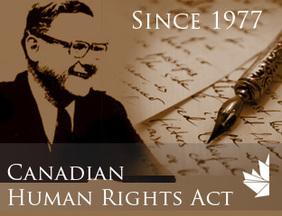Blurred Lines: Jurisdictional Abuse by Police Executives (Pamela Machado)
Throughout the past decade, there has been no shortage of discussions regarding the threat of Police Association representatives being subjected to investigations, by either a local Chief of Police, or one of the provincial oversight bodies. However, there is little to cite from legally when providing advice on the matter.
For those that are not familiar, or unaware, of the police disciplinary process, it is important to know that a local Chief of Police is legislatively invested with substantial authority. The ‘hearing process’, that a Police Officer is subjected to, is akin to that of a military tribunal; where the Hearing Officer and Prosecutor are selected, and paid for, by the Chief. In fact, a Chief of Police is legislatively empowered to initiate, investigate, prosecute, and adjudicate a Police Services Act matter. In addition, there is no independent mechanism for which a Police Association, or serving police officer, can have any potential abuse by a Chief of Police addressed.
Issues concerning abuse of authority by a Chief of Police can often be predicted, and when there are repeated requests by Police Associations for independent investigations of those Chiefs, one only needs to read local media headlines, to foresee the direction that will result. As the criticisms mount against a Chief, especially publicly, the temptation to abuse their exclusive authorities also increases, blurring the legal lines between the Police Services and the Police Associations.
Though there are many anecdotal stories of Chief’s ‘pursuing’ Police Association Presidents, there is little in the way of legal facts. For many decades, Police Associations have legally operated as independent Not-for-Profit Corporations. The legal structure of a Police Association is almost universal; members from the respective police service elect a President and Board of Directors. The majority of the Police Associations, across Canada, conduct their business with part-time elected representatives.
Over time, as municipalities expanded, so did local Police Services and Police Associations. Through the collective bargaining process, the larger Police Associations negotiated a ‘Leave of Absence’ (LOA) section into the collective agreement, so that the membership would have full-time union advocacy. This LOA is funded by the dues collected by the Police Association (not paid for by the taxpayer). When the member is placed on the LOA, they become ‘inactive’ at their respective former employer; subsequently, their local Police Association contractually binds them as an employee of the Not-for-Profit Corporation.
Though this LOA structure provides a clear legal separation from the Police Service, there are legal abuses by Police Executives that occur. Also, as a result of a lack in economies of scale, such as an insufficient dues base, there remain a significant amount of Police Associations that operate with part-time elected representatives.
There are two highly publicized cases that are worth drawing attention to that highlight the jurisdictional legal abuses by Police Executives: J.R. Christie/Bain/Walsh vs. Ontario Provincial Police (OPP) (April 11, 2022); also, Ottawa Police Association (OPA) (Skof, OPA Association Executive) vs Ottawa Police Service (OPS), 2019. (Attached).
In both of these matters, the elected Police Association representatives were on LOA’s and serving their members as full-time union representatives for their respective Police Association. All four had been sworn officers (with OPP and OPS, respectively) prior to their Leave of Absence to the Police Association. Also, all four of them were abusively subjected to the police disciplinary process. This was, and remains, legally unprecedented.
The impact of this abuse of legal authority by Police Executives on Police Associations cannot be overstated. Every union, legally, needs to operate independently from an employer; there is a fundamental fiduciary duty, the duty of fair representation to a unions’ membership, that cannot be maintained if there is an imbalance in legal authorities. In the policing profession, the legislative framework of the Police Services Act threatens the independence of Police Associations.
In the civil matter of Skof vs. Bordeleau (2020 ONCA 729), there was clarity provided regarding the jurisdiction in which a Police Association could seek financial damages from an alleged abuse committed by a Police Executive. In this matter, OPS Chief Bordeleau ‘suspended’ the Ottawa Police Association President. Though Skof was on a LOA, Bordeleau is alleged to have interfered with Skof’s ability to conduct his union activities. The Court of Appeal ruled unanimously that Skof was not bound by the prescribed ‘grievance’ process listed in the OPA/OPS collective agreement. The Court also questioned whether Skof was still defined as a police officer, while serving in his capacity as President, but did not make a determination on that point.
Regardless of the Court of Appeal comments and decision, the Ontario Provincial Police continues (abusively) to hold disciplinary hearings against Christie/Walsh/Bain. The accusations leveled against all three stem from their roles as Police Association Executives. The Hearing Officer in this matter has been appointed by the OPP Commissioner; he is a retired police Superintendent who (like all Hearing Officers) is being remunerated by the OPP Commissioner.
In a recent motion, the legal argument regarding the jurisdiction of the Tribunal over such conduct was put to the Hearing officer. In a 64-page(309 paragraph) motion, Counsel submitted that it is an abuse of authority for the hearing to proceed, as the OPP Commissioner did not have a legal jurisdiction to investigate or sanction Christie/Walsh/Bain for their actions/conduct as Police Association Executives, employed by an independent not-for-profit corporation. As such, the Notice of Hearing was improperly laid, and the Tribunal lacked jurisdiction to conduct the proceedings therein. The abuse of process motion was denied by the Hearing Officer.
There remains a significant legal issue that must be re-examined here, and it impacts all Police Association Executives. As it stands today, any legal system that is so overtly out of balance will only encourage corrupt, abusive, behaviour of those in positions of authority. This decision must be appealed, to have an independent assessment of such a vital issue conducted. In our view, this may only occur at the level of Judicial Review.
Throughout the past decade, there has been no shortage of discussions regarding the threat of Police Association representatives being subjected to investigations, by either a local Chief of Police, or one of the provincial oversight bodies. However, there is little to cite from legally when providing advice on the matter.
For those that are not familiar, or unaware, of the police disciplinary process, it is important to know that a local Chief of Police is legislatively invested with substantial authority. The ‘hearing process’, that a Police Officer is subjected to, is akin to that of a military tribunal; where the Hearing Officer and Prosecutor are selected, and paid for, by the Chief. In fact, a Chief of Police is legislatively empowered to initiate, investigate, prosecute, and adjudicate a Police Services Act matter. In addition, there is no independent mechanism for which a Police Association, or serving police officer, can have any potential abuse by a Chief of Police addressed.
Issues concerning abuse of authority by a Chief of Police can often be predicted, and when there are repeated requests by Police Associations for independent investigations of those Chiefs, one only needs to read local media headlines, to foresee the direction that will result. As the criticisms mount against a Chief, especially publicly, the temptation to abuse their exclusive authorities also increases, blurring the legal lines between the Police Services and the Police Associations.
Though there are many anecdotal stories of Chief’s ‘pursuing’ Police Association Presidents, there is little in the way of legal facts. For many decades, Police Associations have legally operated as independent Not-for-Profit Corporations. The legal structure of a Police Association is almost universal; members from the respective police service elect a President and Board of Directors. The majority of the Police Associations, across Canada, conduct their business with part-time elected representatives.
Over time, as municipalities expanded, so did local Police Services and Police Associations. Through the collective bargaining process, the larger Police Associations negotiated a ‘Leave of Absence’ (LOA) section into the collective agreement, so that the membership would have full-time union advocacy. This LOA is funded by the dues collected by the Police Association (not paid for by the taxpayer). When the member is placed on the LOA, they become ‘inactive’ at their respective former employer; subsequently, their local Police Association contractually binds them as an employee of the Not-for-Profit Corporation.
Though this LOA structure provides a clear legal separation from the Police Service, there are legal abuses by Police Executives that occur. Also, as a result of a lack in economies of scale, such as an insufficient dues base, there remain a significant amount of Police Associations that operate with part-time elected representatives.
There are two highly publicized cases that are worth drawing attention to that highlight the jurisdictional legal abuses by Police Executives: J.R. Christie/Bain/Walsh vs. Ontario Provincial Police (OPP) (April 11, 2022); also, Ottawa Police Association (OPA) (Skof, OPA Association Executive) vs Ottawa Police Service (OPS), 2019. (Attached).
In both of these matters, the elected Police Association representatives were on LOA’s and serving their members as full-time union representatives for their respective Police Association. All four had been sworn officers (with OPP and OPS, respectively) prior to their Leave of Absence to the Police Association. Also, all four of them were abusively subjected to the police disciplinary process. This was, and remains, legally unprecedented.
The impact of this abuse of legal authority by Police Executives on Police Associations cannot be overstated. Every union, legally, needs to operate independently from an employer; there is a fundamental fiduciary duty, the duty of fair representation to a unions’ membership, that cannot be maintained if there is an imbalance in legal authorities. In the policing profession, the legislative framework of the Police Services Act threatens the independence of Police Associations.
In the civil matter of Skof vs. Bordeleau (2020 ONCA 729), there was clarity provided regarding the jurisdiction in which a Police Association could seek financial damages from an alleged abuse committed by a Police Executive. In this matter, OPS Chief Bordeleau ‘suspended’ the Ottawa Police Association President. Though Skof was on a LOA, Bordeleau is alleged to have interfered with Skof’s ability to conduct his union activities. The Court of Appeal ruled unanimously that Skof was not bound by the prescribed ‘grievance’ process listed in the OPA/OPS collective agreement. The Court also questioned whether Skof was still defined as a police officer, while serving in his capacity as President, but did not make a determination on that point.
Regardless of the Court of Appeal comments and decision, the Ontario Provincial Police continues (abusively) to hold disciplinary hearings against Christie/Walsh/Bain. The accusations leveled against all three stem from their roles as Police Association Executives. The Hearing Officer in this matter has been appointed by the OPP Commissioner; he is a retired police Superintendent who (like all Hearing Officers) is being remunerated by the OPP Commissioner.
In a recent motion, the legal argument regarding the jurisdiction of the Tribunal over such conduct was put to the Hearing officer. In a 64-page(309 paragraph) motion, Counsel submitted that it is an abuse of authority for the hearing to proceed, as the OPP Commissioner did not have a legal jurisdiction to investigate or sanction Christie/Walsh/Bain for their actions/conduct as Police Association Executives, employed by an independent not-for-profit corporation. As such, the Notice of Hearing was improperly laid, and the Tribunal lacked jurisdiction to conduct the proceedings therein. The abuse of process motion was denied by the Hearing Officer.
There remains a significant legal issue that must be re-examined here, and it impacts all Police Association Executives. As it stands today, any legal system that is so overtly out of balance will only encourage corrupt, abusive, behaviour of those in positions of authority. This decision must be appealed, to have an independent assessment of such a vital issue conducted. In our view, this may only occur at the level of Judicial Review.
| defence_motion_decision_-_abuse_of_process_and_loss_of_jurisdiction.pdf |
| Skof vs. Bordeleau (CA) |

 RSS Feed
RSS Feed





